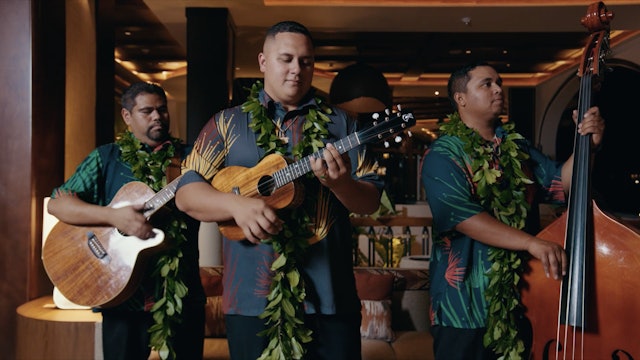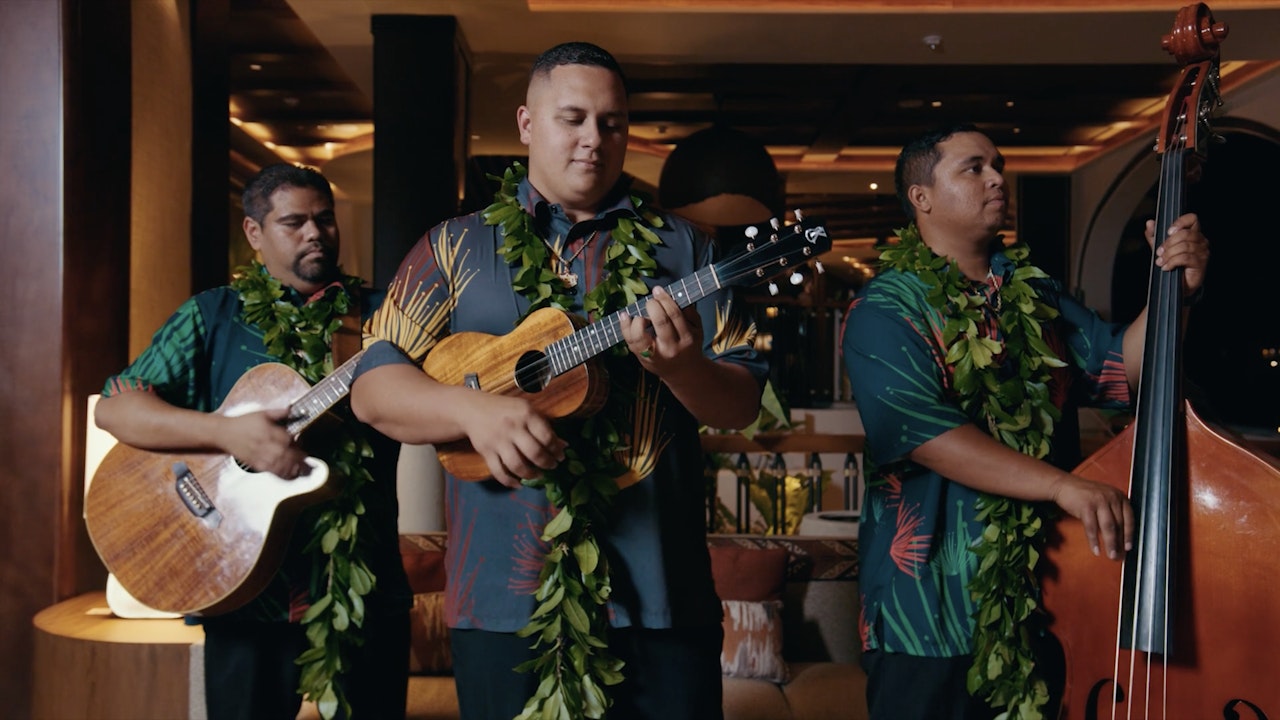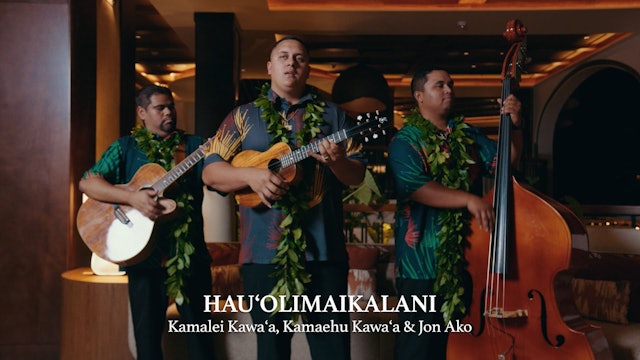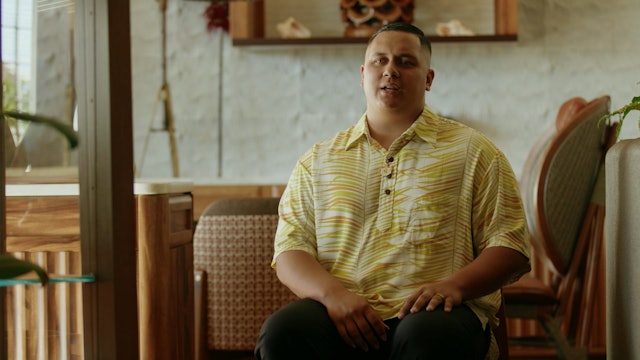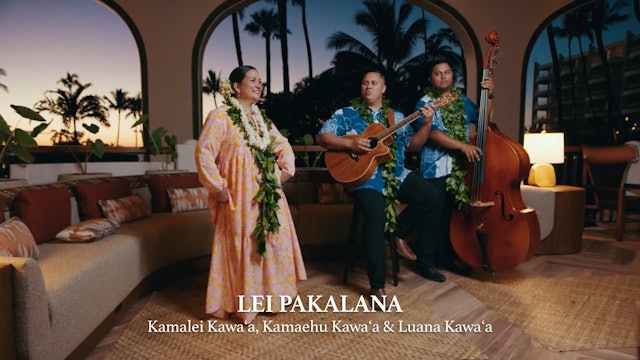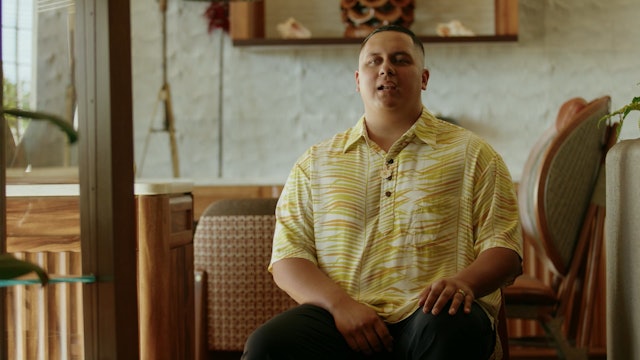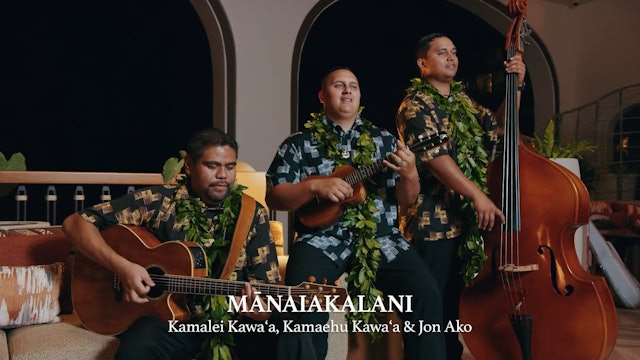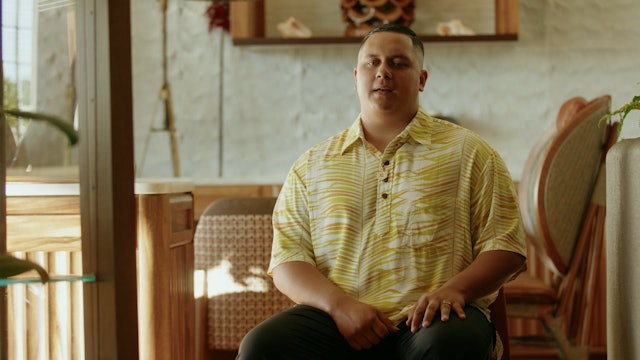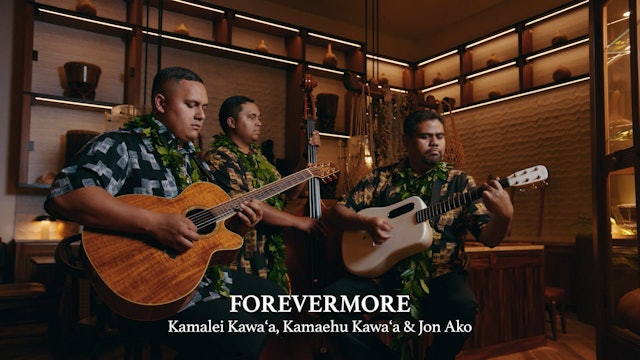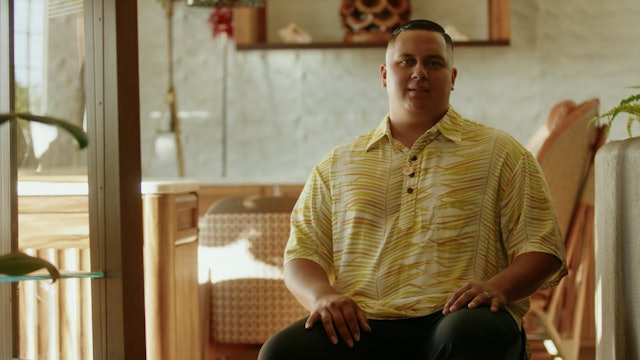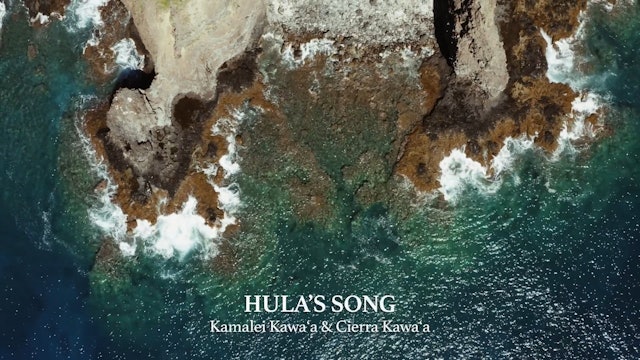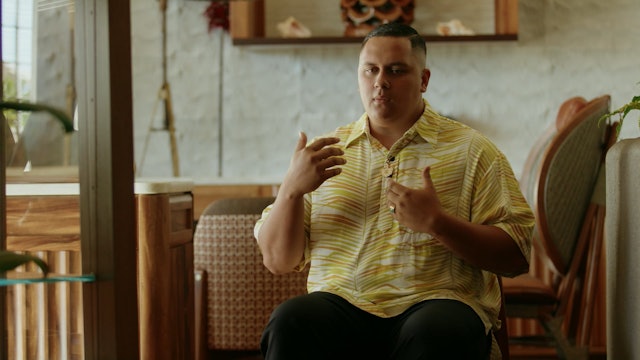Kamalei Kawaʻa - Mele Series
Kamalei Kawaʻa shares a series of compositions demonstrating the cultural practice of haku mele. The unique characteristics of mele lends itself to larger conversations around the concept of Native Hawaiian Intellectual Property. Kamalei discusses the difference between Western concepts of ownership with Native Hawaiian concepts of stewardship.
-
Hauʻolimaikalani
"Hauʻolimaikalani" is a mele inoa, or name song, for Kamalei's wife, Cierra Hauʻolimaikalani Kawaʻa. Kamalei weaves together familiar words and phrases of love to create an expression of familiar, yet ever-fresh, love.
-
From the Haku Mele: Hauʻolimaikalani
"Within this song, you'll notice phrases and words that might seem familiar. It's an actual practice that we do to encompass more meaning into the song." In composing Hauʻolimaikalani, Kamalei explains how he incorporated other familiar expressions to bring more meaning to his song for his belove...
-
Lei Pakalana
In honor of his mother, his father and the ʻāina (land) they come from, Kamalei composed "Lei Pakalana," sung with his brother, Kamaehu, with hula by their mother, Luana.
-
From the Haku Mele: Lei Pakalana
"As a haku mele in Hawaiian Composition, it's important that we listen to those signs, because we know that that's something special that needs to be added to the song." Kamalei describes the role of feeling when embedding treasured stories, beloved people, and familiar places within his mele.
-
Mānaiakalani
After a memorable sail with Captain Archie Kālepa on the Maui-based waʻa, "Mānaiakalani" commemorates the traditional sailing canoe as a beacon and inspiration for the Lāhui (Hawaiian people).
-
From the Haku Mele: Mānaiakalani
-
Forevermore
Kamalei composed "Forevermore" for a beloved Uncle who has since passed. The mele captures the Hawaiian worldview that our kūpuna (ancestors) are always close by – in the nature that surrounds us.
-
From the Haku Mele: Forevermore
"When these songs come to me quickly, and when they come to me like this, I know the song isn't meant for me, and I know it isn't my song." Kamalei discusses a different sense of "ownership" within the haku mele practice, where sometimes, the haku mele is more of a conduit than a composer.
-
Hula's Song
Affectionately called "Hula's Song", this mele honors Kamalei's and Cierra's eldest daughter, Hulaleʻa Kaleihōʻoluikapoli Kawenaʻulaokalāʻauʻala Makalauliʻa Kawaʻa, along with the beloved people and deep meanings behind her special name.
-
From the Haku Mele: Hula's Song
"The way that we honor people is writing them songs that last through the test of time." Kamalei shares his haku mele process of embedding knowledge, experience, people and love for his daughter, Hulaleʻa Kaleihōʻoluikapoli Kawenaʻulaokalāʻauʻala Makalauliʻa Kawaʻa.

